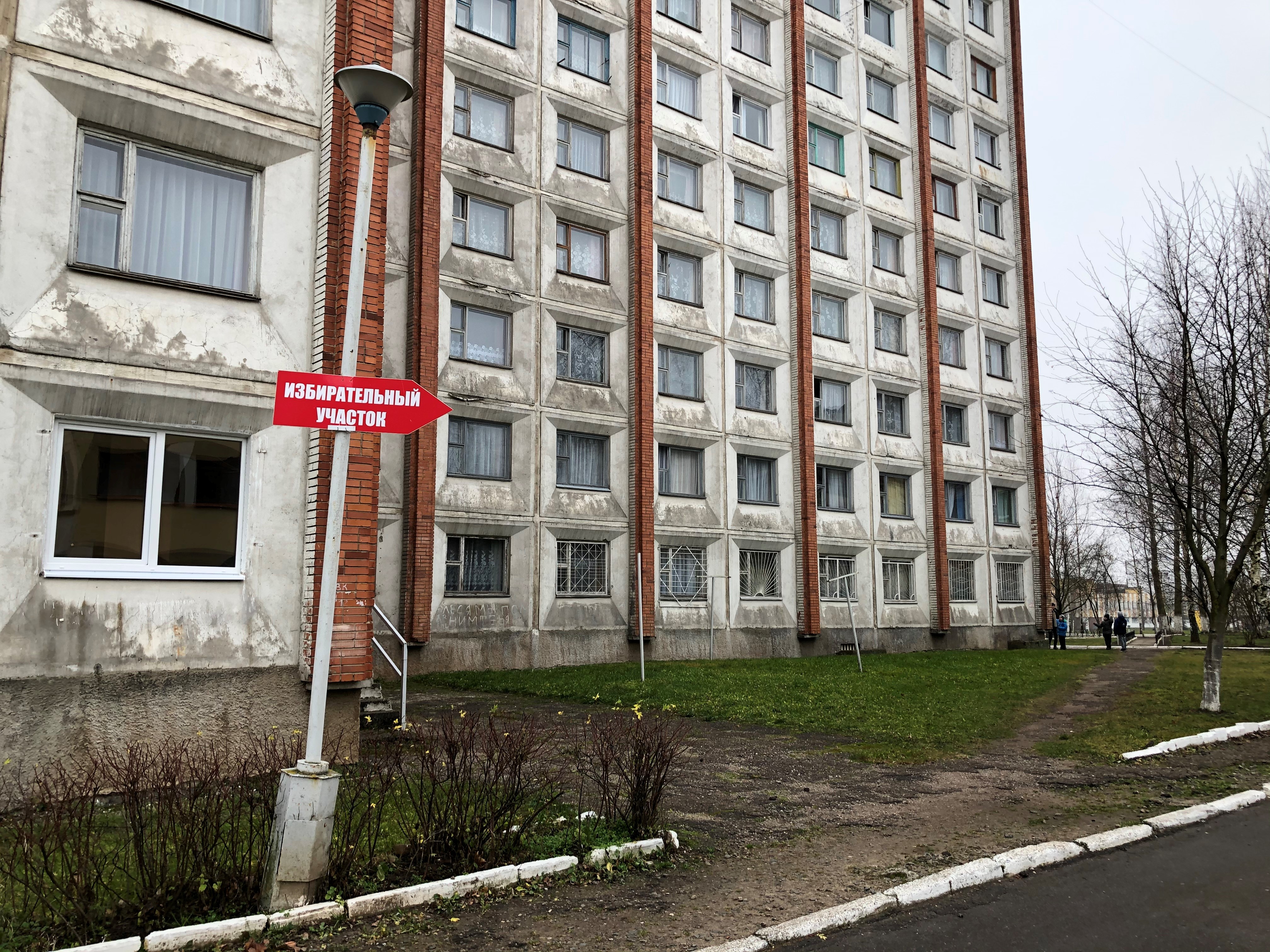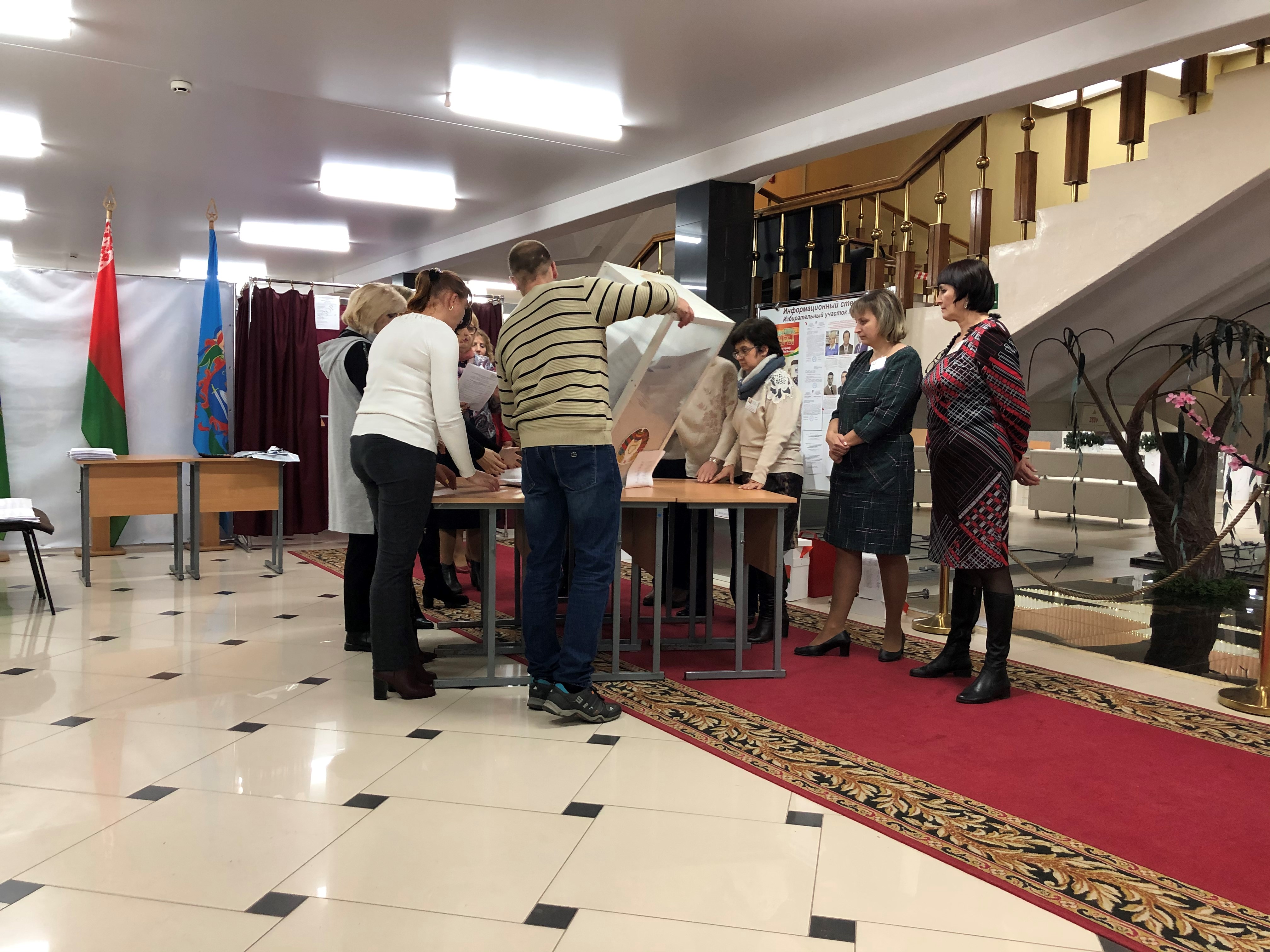By Rachel Bauman,
Policy Advisor
Election day began like every November day in Belarus: black. Without the time change that makes a late-autumn morning in DC bearable, darkness enveloped Belarus until almost 9:00 a.m. We would be rising much earlier than that to observe the opening of the polls for the November 17 parliamentary election.
This was my second election observation, after the first round of the Ukrainian presidential election in March 2019. That election was widely considered free and fair—a great achievement for a new democracy plagued by a Soviet legacy. In Belarus, the last election generally considered free and fair was the 1994 election of President Alexander Lukashenko, who remains in power, with essentially complete control over the government, 25 years later.
Most Belarus-watchers suspected that much of the number-fudging was done before the arrival of election day observers. Early voting took place throughout the week before election day, providing an opportunity to inflate turnout numbers. Multiple opposition candidates could not even make it on the ballot due to selectively-imposed restrictions and technicalities applied to stamp out the competition well before voting took place. Neither I nor the other members of my election observation team (two diplomats already in Minsk: one from the U.S. Embassy, and one from the Swedish Embassy), expected many surprises from the conduct and outcome of the elections.
The day started smoothly enough, with a standard, albeit sparsely attended, opening. As we moved on to other polling stations throughout the day, the conditions were mainly the same: observers registered with the chair of the election commission for that precinct and were seated at a table specifically for observers, both national and international.

Sign directing voters to polling sites in Belarus.
Because the vast majority of OSCE PA observers remained in the Minsk region, and we had traveled a few hours northeast to Vitebsk, we came across only Belarusian observers, whether from trade unions, political parties, or other groups. The observer tables were far enough away from the action that in most cases we could not see much of the voter sign-in and identification check process. When we asked to see the voter lists, we were denied in multiple instances. This was startling for me; in Ukraine, we wandered freely throughout polling stations and had access to everything.
Nevertheless, the mood was festive and the people friendly. Music—from disco to Soviet favorites to patriotic tunes—played in the background at several polling places. We received candies in one location and a proud explanation of the region’s main industry in another. A few photos were taken with us, and at one polling place a neighboring observer remarked how interested she was that I had come all the way from the United States just for the election in Belarus!
Despite the fun and frivolity, it became clear to us by the end of the day that, though we had seen no gross violations in conduct, the whole process lacked the transparency I had witnessed in Ukraine, or that should be expected in any OSCE country committed to democratic norms.
Nowhere was this more apparent than during the count. As usual, we were confined to the observers’ table just far enough from where the action was taking place to limit real observation. The mobile voting, early voting, and election day ballots were collected and counted in one pile, silently. Because we could not fully see or hear the count, there was no way of knowing whether it was accurate, even though the precinct chairwoman came over occasionally to riffle through the marked ballots for us. By only 9:15 p.m.—the polls had closed at 8—the count was finished and a winner declared.

Votes being counted at a polling site.
Our next step was to follow our companions from the polling station to the District Election Commission, where they would deliver the results protocol and election materials. After watching a few deliveries from around the area and encountering many familiar faces from earlier in the day, we decided to head back to the hotel, arriving at a remarkably early 10:30 p.m. Though it was still a long and exhausting day, many such elections, including the one I’d observed in Ukraine, had counts lasting long into the night.
The next morning’s results were both surprising and unsurprising. It was no great shock to see that the reported turnout was over 77 percent—suspiciously high for elections to a body with no real power.
According to the Statement of Preliminary Findings and Conclusions, the OSCE International Election Observation Mission noted that early voting turnout in particular (35.77 percent) seemed inflated compared to the reports of observers. More disturbingly, not a single opposition candidate was elected (there had been two in the previous parliament). That Lukashenko would not permit even a semblance of pluralism calls into question the seriousness of his seeming attempts to court the West when faced with a revanchist and controlling Russia—a topic which the U.S. Helsinki Commission explored in a hearing held shortly after the election.
Observers would be wise to watch the trajectory of the country as Lukashenko navigates his tricky relationships with the West and Russia. Ultimately, stability—in large part the stability of his own job—will be first in his mind as the 2020 Belarusian presidential election swiftly approaches.
A major political upheaval is not likely in the cards. When my colleague stationed in Grodna asked a young independent observer if he’d seen anything interesting or unusual during election day, the observer responded, “Unusual? No. Nothing unusual. This is Belarus. There has been nothing unusual for 25 years.”








